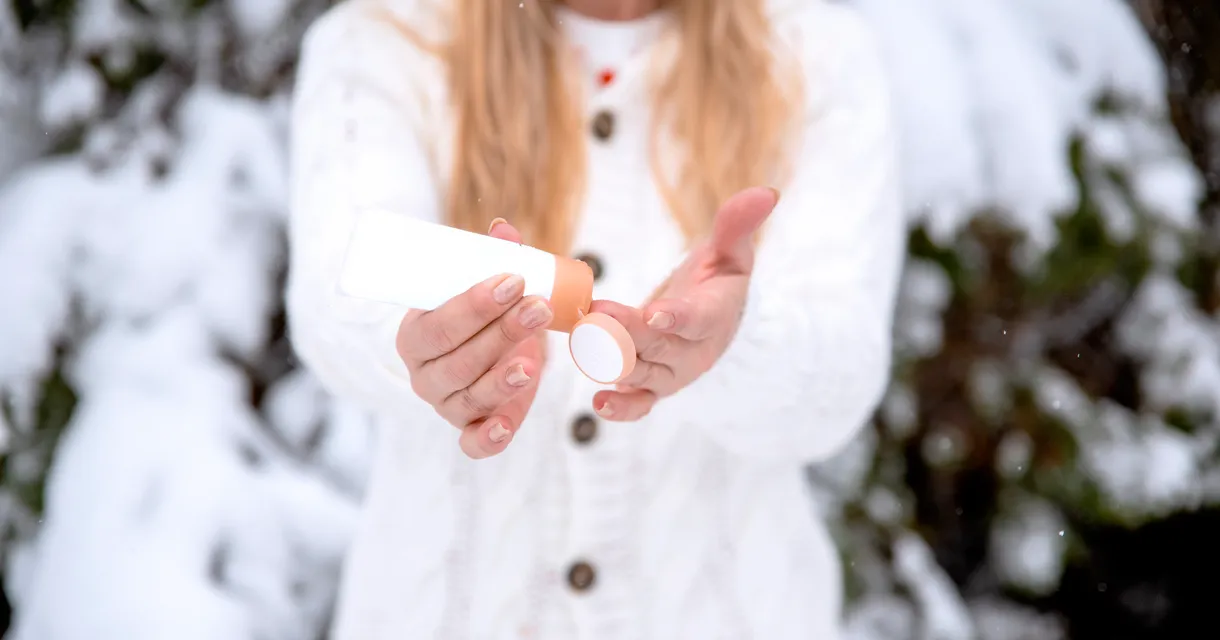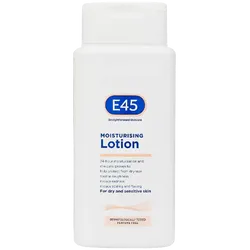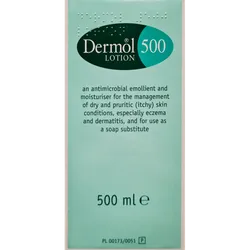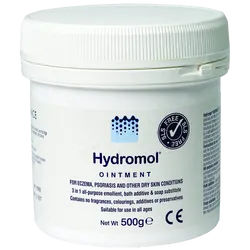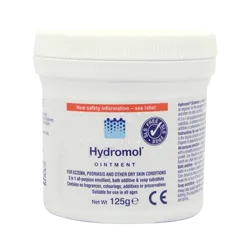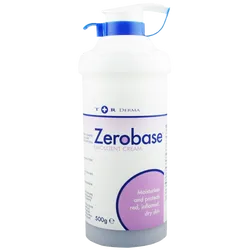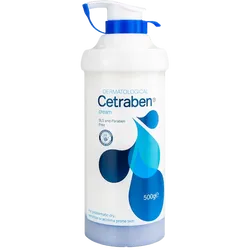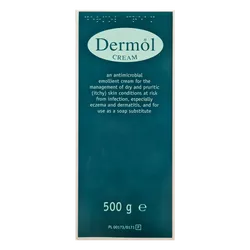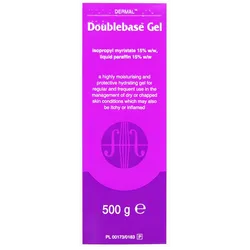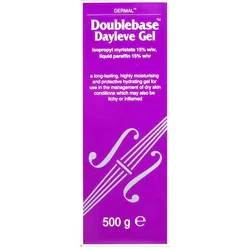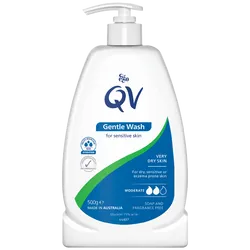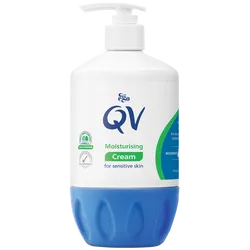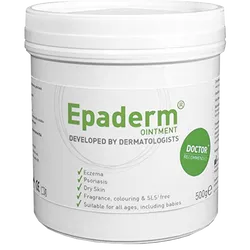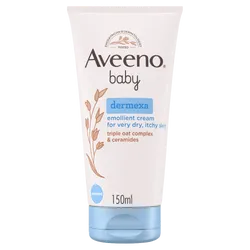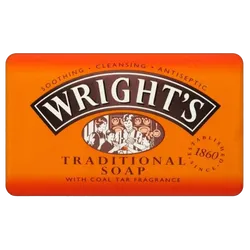Eczema is a condition that affects the skin, causing it to become dry. This can lead to irritation, itching, inflammation, cracking and even bleeding.
Many people find that their eczema worsens during the colder winter months. Find out why, and learn how you can help to prevent and treat winter eczema flare-ups.
Why Does Eczema Flare-Up in Winter?
In the winter the air becomes cold and dry. Coupled with indoor heating systems, this can cause the skin to dry out, resulting in symptoms of eczema worsening. It may also be worsened by factors like taking hot baths or wearing thick, itchy fabrics such as wool; two things you are more likely to do during winter.
Tips for Preventing Eczema in Winter
If your eczema is worse in winter, read our 12 tips for helping to soothe irritated skin and minimise future flare-ups.
Avoid Dramatic Temperature Changes
When your skin experiences dramatic temperature changes it can begin to feel dry and itchy. You may have noticed this when you leave a warm house to go outside on a cold day or vice versa, or when you are sitting directly next to a fire or radiator.
You should try to avoid exposing your skin to sudden changes in temperature by wrapping up warm when you go outside to stop your skin from getting cold too quickly. If winter eczema on your hands is an issue, make sure to always wear gloves in the colder months.
After being outside on a cold day, it can be tempting to run hot water over your hands or to take a hot bath or shower. This can actually be one of the causes of winter eczema flare-ups. The quick change in temperature can cause irritation to the skin. When you get out of a hot bath or shower, your skin also cools down rapidly causing yet another drastic temperature change. Make sure your shower or bath water isn’t too hot and moisturise right after washing.
You should also keep a hand cream with you to moisturise your hands throughout the day, especially after washing them.
Moisturise often
We’ve already touched a little on the importance of moisturising but, it is key to helping your skin lock in moisture to prevent it from becoming dry and cracked. Those who suffer from eczema may find that they need a heavier moisturiser, especially in the wintertime.
You should moisturise areas prone to eczema flare-ups frequently throughout the day, and apply it liberally to help protect your skin from the drying effects of the cold winter air. We stock a range of sensitive skin moisturisers suitable for those with eczema at our online pharmacy, including Dermol 500 Lotion and Aveeno Daily Moisturising After-Shower Mist.
Prescription Eczema Treatments
If your eczema is particularly bad in winter, you should visit your GP. They will be able to prescribe the most appropriate product to help treat your eczema.
Many of the products that a GP may prescribe for eczema are also available over the counter (OTC) at your local pharmacy. These products include emollients such as Zerobase Emollient Cream or Dermol 600 Bath Emollient. There are also a range of other suitable products including ointments such as Epaderm, lotions such as Dermol 500 and gels like Doublebase Gel.
If you have tried over the counter treatments, your doctor may decide to prescribe a hydrocortisone steroid cream to help relieve itching, antihistamines or non-steroidal anti-inflammatory drugs (NSAIDs).
Avoid Harsh Skincare Products
As the skin becomes drier, it can also become more sensitive to certain chemicals and ingredients. A product that was fine for your skin during summer may begin to cause irritation and result in contact dermatitis or an eczema flare-up.
Try to use products that do not contain any fragrances or harsh chemicals. Soaps can be extremely drying to the skin, stripping it of its natural oils. This can also occur if you wash your hands, face or body too frequently, especially when it’s cold.
You can get specialised body washes and skincare for eczema-prone skin, these skincare products have been formulated for those with eczema in mind.
Dermol 500 Shower Emollient contains liquid paraffin and isopropyl myristate designed to moisturise the skin. It can be used in place of a shower gel in order to cleanse the skin and help to restore the skin's smoothness, softness and flexibility.
The Aveeno Dermexa Daily Emollient Body Wash also does this but by using Active Naturals Oat (Avenanthramides and Colloidal Oats) and ceramides to gently cleanse the skin without drying it.
If you prefer bar soap, the MooGoo Fresh Buttermilk Cleansing Bar is ideal for those who suffer from eczema or dermatitis. Using natural ingredients, the bar contains high levels of fat and moisturising oils to soothe the skin and help it to retain its moisture.
Take Vitamin D Supplements
Vitamin D is used by our bodies for a wide range of things; one of which is repairing our skin. We usually get vitamin D from sunlight, which in the winter months, is naturally lacking. Between October and March, the sun is not strong enough for our bodies to produce vitamin D. We also tend to go outside less due to the cold.
You should consider taking vitamin D supplements throughout the winter months to ensure your body is able to repair the skin effectively. We offer a wide range of vitamin D supplements including Vitabiotics Ultra Vitamin D3 Tablets and Healthspan Vitamin D Apple & Blackcurrant Gummies for those who aren’t a fan of tablets.
Wear Suncream...Even in the Winter!
Just because the sun isn’t strong enough for us to produce vitamin D during winter, doesn’t mean that your skin can’t still get burnt. Sunburn can dry the skin out even further, making winter eczema symptoms worse.
You should wear SPF year-round, especially on your face. You can get specific suncream for your face, such as the Sunsense Anti-Aging Sun Cream SPF 50, that are less oily and can be worn under makeup. We also have a wide range of other sun care products to help protect your skin.
Use a Humidifier
The use of indoor heating systems in winter can make the air very dry. Coupled with the dry air outside, our skin is getting very little natural moisture.
To combat this, you could try using a humidifier. They work to add moisture to the air which can help to soothe irritated skin and prevent it from further drying or cracking.
Keep Your Skin Dry
Now, you may think that keeping your skin dry sounds counterproductive after we just talked about the importance of moisture for the last 7 sections. Moisturised and damp are two very different things, however.
Whilst you should always ensure that your skin has enough moisture, letting the skin stay wet or damp for prolonged periods can cause irritation and can even lead to fungal growth and infections.
If you have been outside in the rain or snow, you should remove wet clothes as soon as possible and dry your skin. Remember not to take a hot shower straight away after getting in from the cold and always moisturise after drying the skin.
Natural Remedies
For those who want to try an alternative method for treating winter eczema flare-ups, there are some natural remedies thought to help. There is however no proof for the effectiveness of these treatments and should only be used alongside recommended treatments from your GP or pharmacist.
The National Eczema Society discusses the use of therapies such as acupuncture, hypnotherapy and reflexology to help people to cope with the stress of eczema flare-ups.
They also mention the use of certain homoeopathic and Chinese herbal creams. Certain herbal remedies can result in liver and kidney damage, however, so you should always talk to your doctor or other healthcare professional first and have regular blood tests to keep a check on the liver and kidneys.
Wear Layers
We talked about the importance of wrapping up warm during winter and avoiding drastic temperature changes; wearing layers can be the ideal way to do this!
Wearing layers allows you to slowly alter your body temperature based on the environment around you. Should the temperature of your environment change suddenly, you can remove or replace a certain number of layers in order to help keep your body temperature stable.
Ensuring that your skin does not get too hot is just as important as making sure it doesn’t get too cold. Often in winter we wrap up warm and find ourselves too hot. This could result in the skin becoming damp due to sweat, causing further irritation. Wearing layers allows this situation to be avoided.
When choosing your layers opt for natural fabrics that aren’t going to be harsh on the skin. Think cotton. Wool is a common material for winter clothing but it can be scratchy on the skin, making eczema symptoms worse.
Check for Allergies
Whilst eczema is often thought of as something that affects the skin topically, your diet could actually be the culprit!
Certain studies have shown that allergies to foods such as milk, eggs and shellfish can cause eczema. Visit your GP to ensure that you do not have any allergies that could be causing your eczema flare-ups. You should note that if an allergy is the cause of your eczema, you will likely see flare-ups year round, not just in winter.
Drink Plenty of Water
They say you should take care of yourself from the inside out. And whilst many eczema treatments are topical, taking care of your body from the inside can help to prevent it.
The main symptom of eczema is dry, cracked skin. By drinking plenty of water you can help to keep your skin moisturised. You should aim for at least 8 glasses of water a day, including tea, coffee and cordials.
For more information on how to treat eczema in the wintertime, visit a pharmacist at one of our local pharmacy branches. Alternatively, browse our skincare for Eczema, Psoriasis & Dermatitis today.
Even if you don’t suffer from eczema, your skin may still become dry in the winter. Read our guide on how to manage dry skin.
